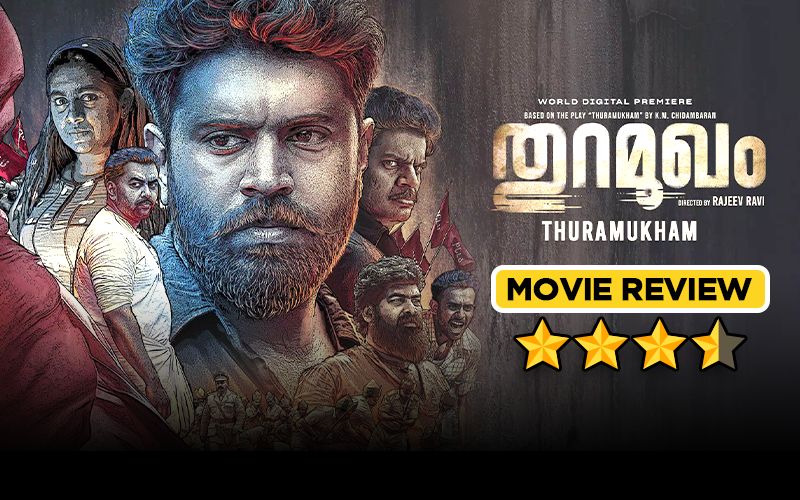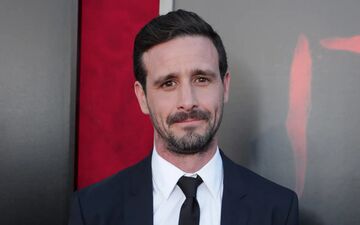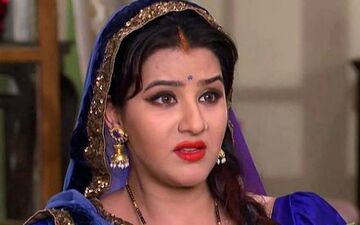Thuramukham Movie REVIEW: Nivin Pauly Starrer Breathes Life With It’s Violence In THIS 1940s Based Period Drama
Nivin Pauly returns to fuelled form in this epic drama on the dignity of labour

For my money and time Nivin Pauly is one of India’s finest contemporary actors. Admittedly some of his recent films have been disappointments. Nivin returns to fuelled form in this epic drama on the dignity of labour. He is a seething bundle of rage as Moidu, a daily wagearner on the harbor where workers protest against the Chappa (token) labour allocation system practiced during the 1940s and 50s in Cochin Kerala.
Nivin’s character doesn’t play for sympathy at all. He has no redeeming qualities, at least none that I could see. He is the son of a noble brave man Mymoo (Joju George in full black-and-white glory) who goes to his death fighting for workers’ rights.
Mymoo’s quietly assertive younger son Hamza (Arjun Ashokan) seems to have inherited his father’s qualities. But the elder one Moidu is a wastrel and a drunkard. Yet his family seems to dote on him.
The entire set of above characters seem to echo Yash Chopra’s Deewaar very closely though the credits in Thuramukham do not acknowledge Deewaar as one of its inspirational sources there is even a fight like Deewaar where Moidu locks himself in a warehouse with a villain.
The film claims to be based on a play by the film’s writer Gopan Chidambaran’s father. I am not sure of how much of the essence of his father’s play Gopan has projected into this film. The screenplay seems to lack a formal structure. It weaves in and out of seemingly true incidents and eschews a cinematic structure for a more free-flowing mix of fact and stagey drama. Which is not an undesirable mix at all.
Director Rajeev Ravi whose earlier work Annayum Rasoolum (and not so much his other directorials) I’ve liked immensely, breathes life into the violence that rocked this part of the world in a specific period of time. I didn’t see the characters suggesting their periodicity in clothes or speech, which is actually a good thing, as the external trappings usually get in the way of the storytelling in period films.
Not this one. Tharamukham affords powerful visuals that stay with us long after the film. For sure, Rajeev Ravi is a better cinematographer than a director. As a storyteller he fumbles over his characters while giving them finishing touches. The suddenness with which Nivin Pauly’s character Moidu drops out of the screenplay, or his unfinished relationship with Umani (Nimisha Sajayan) whom he loves but, as in other aspects of his life, Moidu couldn’t commit to, indicate the vision of a restless storyteller who doesn’t allow his audience to get close to any of his ravaged ravenous characters.
This film is a storehouse of killed unostentatious acting. While the men are violent and vulnerable at the same time, it is the women who hold our attention. Nimisha Sajayan as a homeless woman seeking some permanence, and Poornima Indrajit as Moidu and Hamza’s mother hardly speak. They don’t need to.
The film is leaden with sloganeering. With a temperate vision of social inequality and oppression, Thuramukham could have gone that extra mile. As things stand, this film seems tragically stranded between an achieved excellence and a purported greatness.
Image Source: SpotboyE


